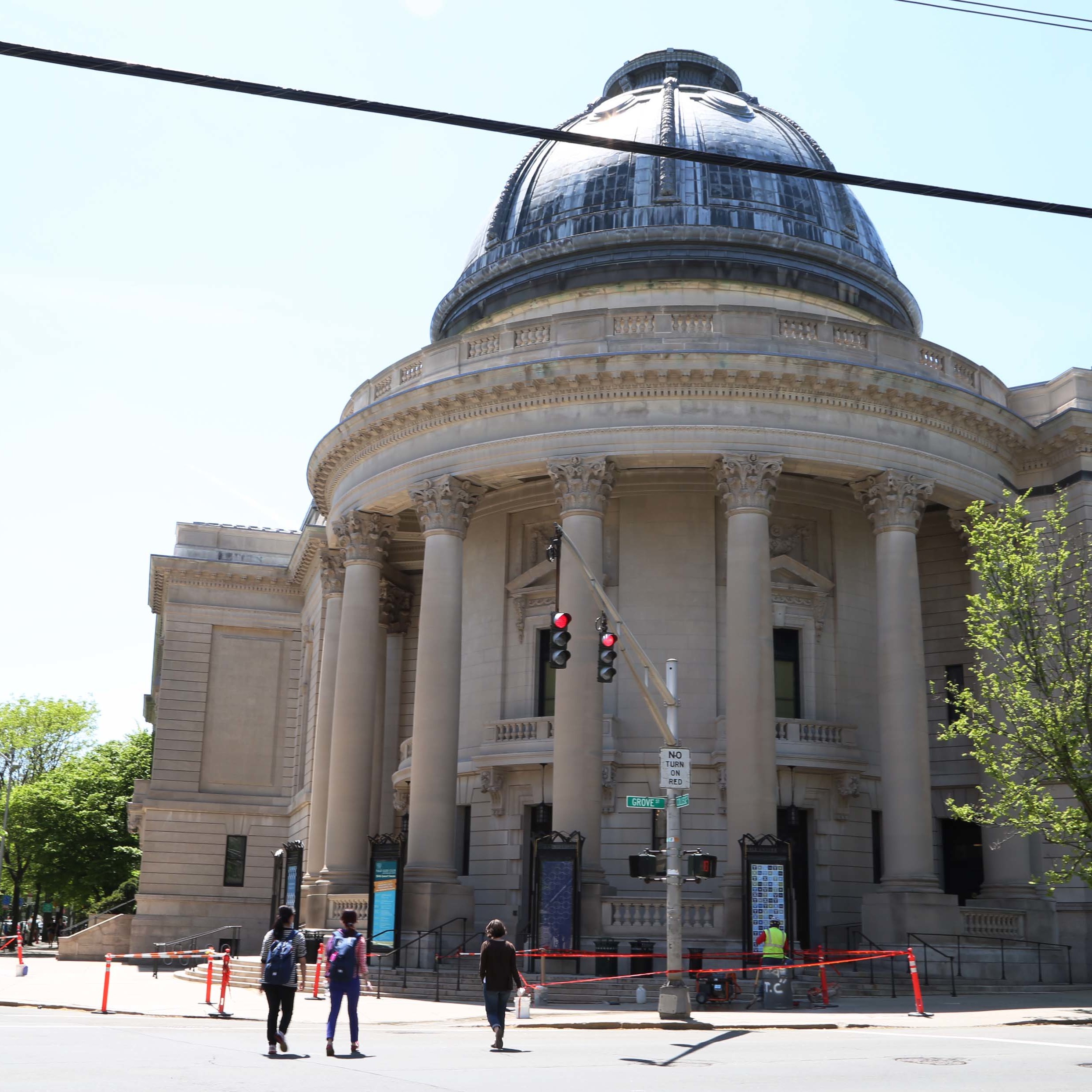
After over a century of performing concerts in Woolsey Hall, the New Haven Symphony Orchestra may have to stop calling the performance venue home.
The orchestra’s executive director, Elaine Carroll, recently received an email from a University official who informed her that Yale may have to prohibit the orchestra from using Woolsey to avoid taxes. The University has claimed that should S.B. 414 — a controversial state bill focused on Yale’s property taxes — pass the Connecticut General Assembly, Yale would be forced to revoke access to facilities for many of the local groups which currently hold events on campus. The bill’s proponents, including state Senate President Martin Looney, D-New Haven, and state Rep. Roland Lemar, D-New Haven, said the bill only seeks to clarify current tax regulations for commercial property held by Yale. But the University has repeatedly argued that the bill would allow municipalities like the cities of New Haven and West Haven to tax Yale’s academic property.
“We respectfully submit that the legislature consider the impact of the unintended consequences to New Haven’s performing arts community and the general community before enacting legislation that could limit our and other not-for-profit organization access to Yale facilities,” Carroll and NHSO Board of Directors President Robert Santy wrote in a follow-up letter to New Haven’s state delegation, addressing the concerns raised by the University.
Carroll told the News that given both the NHSO’s large size and its financial restrictions, finding another performance venue would be difficult. Yale currently provides Woolsey at a rate much lower than market value, Carroll said, though she declined to name a specific figure. Likewise, the Symphony anticipates a 30 percent reduction in state funding, she said, referring to recent budget cuts from the state legislature.
The University has informed NHSO and several other local organizations about the bill, which University spokesman Tom Conroy called a “threat to their access [to University facilities] posed by the legislation.”
While Conroy did not provide a list of all organizations potentially affected, he cited examples such as youth hockey held at Ingalls Rink and artistic performances during the annual International Festival of Arts and Ideas. Charges for these events are intended only to cover expenses, not generate revenue, Conroy said in a statement to the News. This “incidental use” does not imply that the venues involved are commercial in nature, he added.
The bill defines commercial activities as any of the following occurring on University property: rents or other payments; fees collected for admission or use of any sports or entertainment facility; fees, charges or royalties for any goods designed, produced, manufactured; and fees or charges for any services rendered to the public or any for-profit entities. Current state law allows municipalities to tax commercial college and university property generating $6,000 or more income annually.
“The current language of S.B. 414 would require Yale, in order to preserve its freedom from taxation for these buildings, to curtail use of these buildings by individuals without a Yale affiliation,” Conroy said. “This outcome would be disappointing because Yale seeks to be a good neighbor and to contribute to civic life by making the campus accessible to the community.”
S.B. 414 moved forward in the Connecticut legislature by a 28 to 22 vote from the state’s Finance, Revenue and Bonding Committee April 7, and the bill now awaits debate on the full state Senate floor this session.
Speaking with the New Haven Independent, Lemar described the University’s communication with local groups as a “scare tactic,” adding that he thought the University has misinterpreted the bill.
Looney said in a statement that the General Assembly is currently modifying the bill’s language to narrow its scope.
“The goal of the legislation is to remove the ambiguity that currently exists in state statute,” Looney said. “Technology transfer of academic research into commercial application was not within the contemplation of the legislature at the time the statute was modified in 1834. We must evaluate all exemptions in a contemporary context.”
Legislators and other proponents of S.B. 414 have previously voiced concern that commercial activity has been proceeding in the University’s nontaxable buildings. They say the bill will help clarify the boundary between the University’s academic research and research which will have commercial purposes.
Conroy asserted that the University does not house any startup businesses based on the discoveries or inventions of Yale faculty. Although Yale has reported services the West Haven-based Center for Genome Analysis provides for small biotech startups as unrelated business income, the University considers this “incidental use,” given that the startups do not have the capacity to perform these services in-house.
“The availability of this service makes Connecticut more attractive to bioscience companies, but Yale is prepared to terminate the service if the General Assembly believes it is an inappropriately commercial activity in an academic building,” Conroy said.
The University has lobbied aggressively against the bill since a March 22 public hearing in front of the finance committee. In the past few weeks, Associate Vice President for Federal Relations Richard Jacob has emailed University staff, while Vice President and Director of New Haven and State Affairs Bruce Alexander ’65 has reached out to Connecticut-based alumni and written an editorial in the Hartford Courant.
The University paid $4.5 million in property taxes in 2015.







